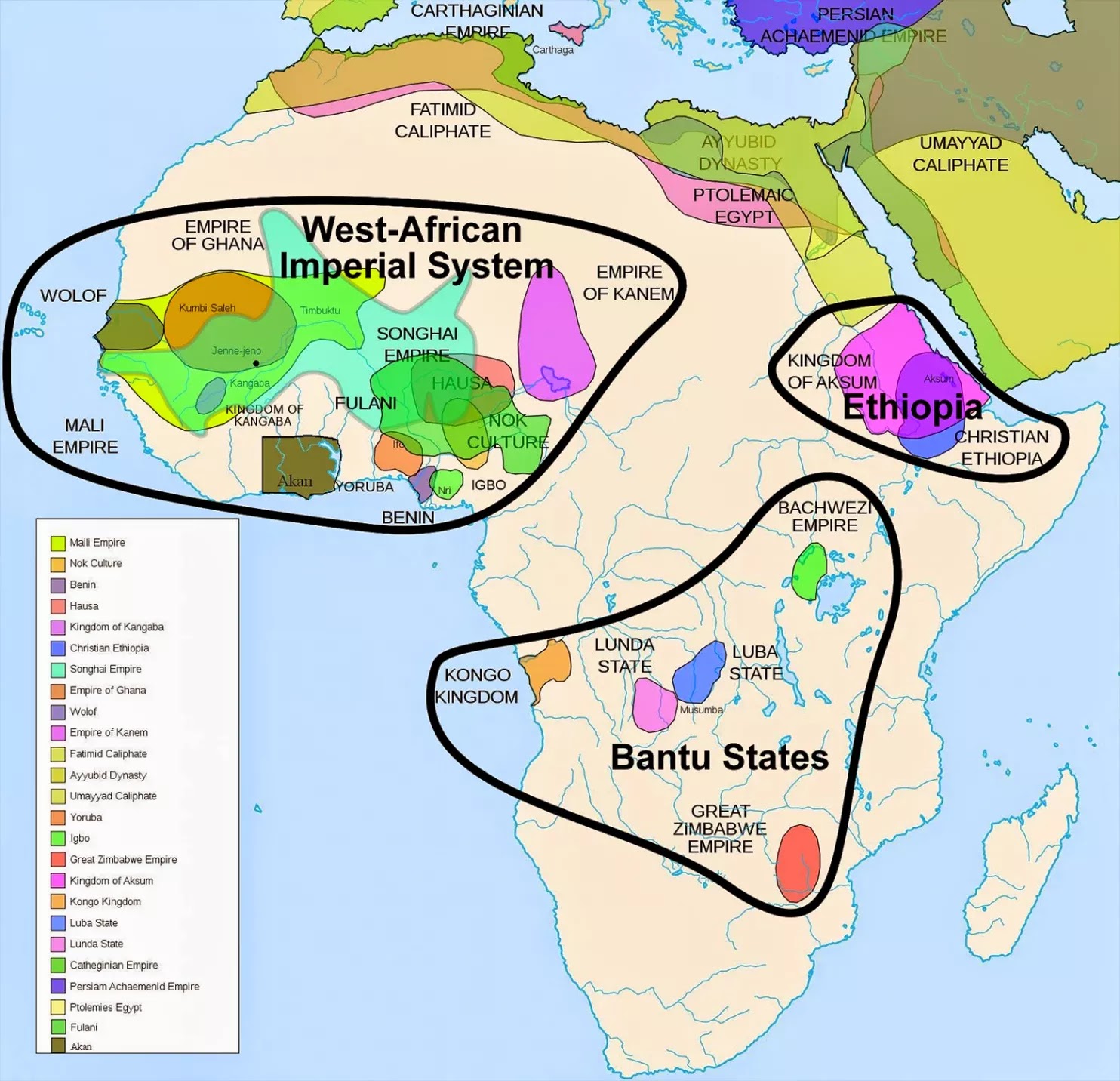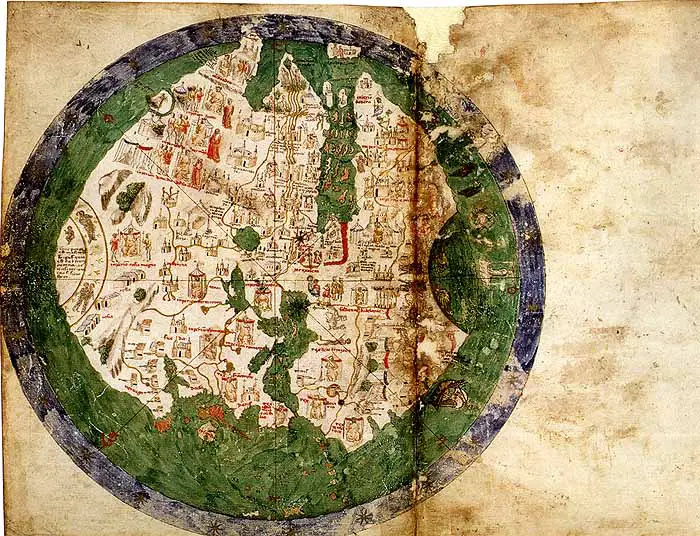What Africa might look like if it had never been colonized
The history of Africa starts with the appearance of archaic humans at least 200 thousand years ago in East Africa. It continues uninterrupted into today as a patchwork of diverse and developing nation-states. The oldest known documented history began in the Kingdom of Kush, and next in Ancient Egypt, the Sahel, the Maghreb, and the Horn of Africa.
Following the desertification of the Sahara, North African history became twisted with the Middle East and Southern Europe. At the same time, the Bantu extension cleared from modern-day Cameroonacross much of sub-Saharan Africa in waves between around 1000 BC and 0 AD, forming a linguistic homology over central and Southern Africa.
The empires of Africa, before colonialism

Africa harbors many mysteries, many of which were lost due to European colonization of the continent. Before European colonialism, Africa had up to 10 thousand various states and societies with different languages. I wonder what Africa would look like if the countries of this continent had historically developed independently.
What Africa might look like if it had never been colonized










One could make the argument that the Roman and subsequent Islamic conquests of North Africa were a form of colonialism, in which case Al-Magrib would be the Berbers and the Misr Sultanate would be…whatever the Ancient Egyptians called themselves.
During the Roman Era, North Africa was part of the European cultural Sphere. Berbers of Northern Africa were shared the religions of Europe and were fully integrated into the European world. It was just another “European” culture.
The rise of Islam and the Muslim Empires permanently severed the almost 3000 year long direct connection between Northern Africa and Europe and cleaved it to the Islamic world.
To refer to either period as colonial is idiotic, because in each instance Northern Africa was an integral part of each cultural sphere, not a subordinate one, but fully integrated.
Egyptians, Libyans and Berbers to Moroccan coast were economically and socially integrated and formed a fundamental part of the European world. (Greece and Egypt had dealings going back to prehistory) North Africa was a full participant in the European world and both played a big role in the development of each other’s cultures as populations moved back and forth between North Africa and Europe for centuries.
This ended when the Byzantine Empire lost its African holdings. After that Northern Africa gradually merged into the Islamic world where it remains today.
At NO time in its history was there ever a distinct North African sphere unrelated to Europe or the Arab world. They were never colonized in the way you use the word. They were Europeans first then merged into the Islamic world.
To think their location is the defining element only means someone is poorly informed re the history of the continent. Being located in Africa was made irrelevant by the Sahara which proves to be a barrier to easy integration between the North and South still today with all our modern means of transport.
Back then the Sahara was an invisible wall that prevented Northern and Southern Africa from the constant cultural sharing North Africa experienced with Europe and then the Islamic world. The sole connection was the Nile Valley and for a variety of reasons was never able to become a link that made North and South Africa one.
Europe and North Africa were closer to each other than North Africa is to Sub-Saharan Africa in terms of distance of ability to travel, trade and share cultures. Compared to the Sahara Desert the Mediterranean Sea is a lake that united rather than divided.
Berbers are European now I guess.
*ahem* Jokes aside, North Africa (well, the Maghreb to be exact) wasn’t really interconnected with either, but grew its first strong connections to the Middle East with the arrival of Phoenician colonies that later grew into the centers of Punic civilization.
North Africa never formed a “fundamental part of the European world” except for when it was part of the Greco-Roman world. Ancient Egyptians, Libyans, and Berbers, were not “economically and socially integrated” into it. In fact, at this point in time, there isn’t much of a “European world” to speak of. Germanic, Hellenic, Slavic, Finno-Ugric, Celtic, and Italic societies weren’t exactly well-acquainted with each other (though archaeology does indicate long-distance bronze trade). Remember migrations on the demographic makeup-altering scale are rare without conquest (even then, unless its a tribal migration following depopulation, this’d more likely be assimilation) or the forced relocation of people in a multiethnic empire (ie. Achaemenids).
It would be more accurate to say Ancient (particularly Minoan and Mycenaean) Greece and Ancient Egypt were integrated into the world of the Ancient Middle East. It was after all the cradle of civilization.
Romanization was quick to take hold and Africa was one of the Empire’s most prosperous and fertile provinces as well as the birthplace of many Emperors, but the final conquest of the Maghreb by the Umayyad Caliphate and ensuing Islamization and Arabization detached it from cultural ties to Europe. The area became further severed from the medieval European world (ie, European Christendom) with the Berber Revolt that saw much of the Maghreb splinter away from Arab rule and revert to native Berber rule (the Umayyads weren’t all too fond of non-Arabs regardless of conversions) but remained part of the Islamic world.
Additionally, the Sahara served as a barrier to invasion, not cultural exchange or trade networks. In fact, the abundance of much coveted natural resources in West Africa and oases dotting the way spurred long-lasting trade routes across the Sahara. And that’s without even mentioning Saharan pastoral nomads who lived there. Commercial ties were strong (not as strong as with the Mideast, but I digress) between North and West Africa, and cultural ties are evidenced by peculiar succession (as noted by Arab historians).
Ironically, though you describe the Sahara as an invisible wall that divided unlike the Mediterranean that united, the Sahara was historically likened to an ocean. I’m also not so sure of the premise that the Nile did not connect North and South Africa. Of course it didn’t link North with South, the (White) Nile doesn’t extend further south than Lake Victoria. But it did link Egypt with Nubia and D’mt.
Lastly I’d say there’s an argument to be made that the Romans, Phoenicians, and Ancient Greeks “colonized” as the cities they founded away from their homeland are referred to as “colonies”, but any such argument would have to recognize the exact nature of these “colonies”. For both the Phoenicians and Greeks they were a maritime civilization that took to the seas to establish trade networks throughout the Mediterranean. The Romans however founded colonies as, more or less, autonomous defensive fortifications whose colonists were enfranchised with full political rights and their own judicial/financial magistrates. Their secondary purpose was to “produce” more Roman citizens and potential recruits for the army, and with the overabundance of them in virtually every corner of the empire, they also served to Romanize provinces that hadn’t already been Hellenized.